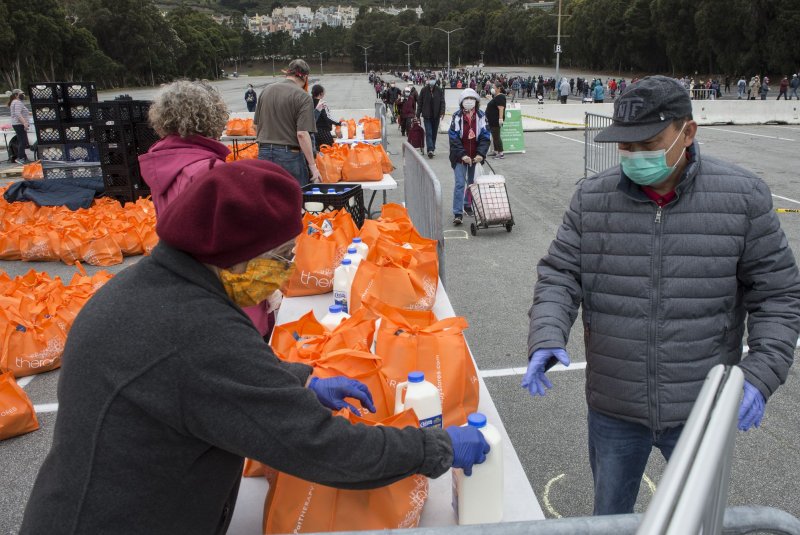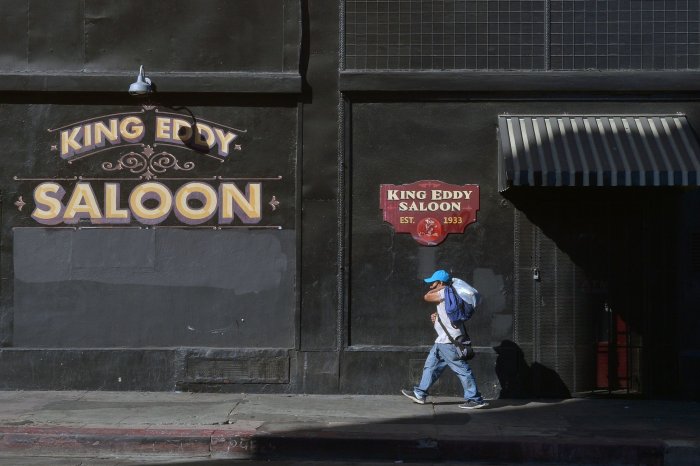1 of 5 | People receive bags of food from the San Francisco-Marin Food Bank in the parking lot of the Cow Palace in Daly City, Calif., on Friday. The Trump administration announced plans to spend $3 billion to purchase food from farmers and ranchers to then funnel to the nation's food banks. Photo by Terry Schmitt/UPI |
License Photo
April 17 (UPI) -- President Donald Trump on Friday unveiled a $19 billion program to assist U.S. farmers and ranchers, and channel their products to food banks as the coronavirus impacts the nation's food supply chain.
The majority of the funding -- $16 billion -- will take the form of direct payments to agricultural producers affected by the economic downturn caused by the coronavirus pandemic.
"These are great people, great Americans," Trump said of the nation's agricultural producers. "Never complain -- they just do what they have to do."
U.S. Agriculture Secretary Sonny Perdue said his department will also work with regional distributors to purchase $3 billion of fresh produce, dairy and meat to send to the country's network of food banks. He said this effort will go toward offsetting financial losses distributors have faced as restaurants, hotels, schools and other businesses have had to close amid the outbreak.
"Having to dump milk or plow under vegetables ready to market is not only financially distressing, but it's heartbreaking as well to those who produce them," Perdue said during Friday's White House Coronavirus Task Force briefing.
A pedestrian walks past a bar established in 1933 after Los Angeles County officials closed it for the second time following a spike in COVID-19 cases in Los Angeles on August 10. Photo by Jim Ruymen/UPI |
License Photo
Earlier this month, dairy farmers said they began dumping excess milk after the sudden closure of schools and restaurants. About half of the dairy products produced in the United States is purchased by the food service industry.
Grocery sales of dairy products have increased as Americans spend more time at home and cook their own meals amid coronavirus shelter-in-place orders. But those bulk purchases have plummeted.
Many of the processors that supply dairy to the food service industry do so in large quantities. They don't have the equipment necessary to switch to smaller packaging sizes.
In addition to the $19 billion effort, Perdue said the U.S. Department of Agriculture is using another $873.3 million in Section 32 funding and at least $850 million from a stimulus bill passed last month to assist food banks.
"The American food supply chain had to adapt, and it remains safe, secure and strong, and we all know that starts with America's farmers and ranchers," Perdue said in a statement. "This program will not only provide immediate relief for our farmers and ranchers, but it will also allow for the purchase and distribution of our agricultural abundance to help our fellow Americans in need."
















